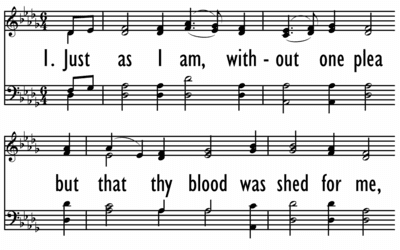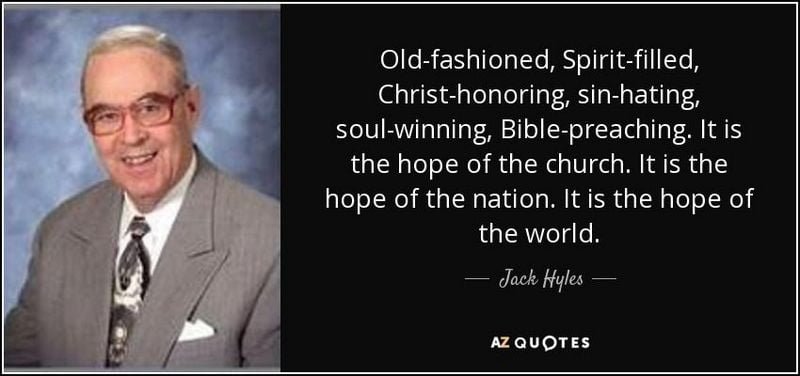
In 2018, I wrote a post titled Emotionally Manipulating IFB Church Members through Music and Preaching Styles. In this article, I detailed the manipulative methods used by Independent Fundamentalist Baptist (IFB) evangelist C.T. Townsend. Since then, Townsend’s fans have stopped by to let me know what they think of my critique and of me personally. If you have read my previous responses to Townsend’s acolytes, you know how hostile they can be — in Christian love, of course. 🙂
- You Better be Mindful of Speaking Against a “Man of God”
- Touch Not My Anointed
- My Response to an Assumption-Filled Email from an Evangelical
- Why Are Evangelicals So Easily Offended by My Writing?
- How Dare I Badmouth IFB Evangelist CT Townsend! Says Fundamentalist Christian
- How Dare I Talk Smack About IFB Evangelist C.T. Townsend
- C.T. Townsend Acolyte Says I’m a Follower of Joel Osteen — Yes, Really . . .
Today, I received yet another letter from a Townsend devotee, this time, from a woman named Rhonda. Rhonda read all of one post before commenting. What follows is my response to Rhonda. All spelling and grammar are in the original.
I truly feel sorry for you Bruce.
Why? Now, if Rhonda said she felt sorry for me because I am dying or that she was sorry that I had gastroparesis, fibromyalgia, osteoarthritis, and degenerative spine disease, or that I live every moment of every day in pain, I would understand and appreciate her words. However, I suspect Rhonda is saying “I feel sorry for you” because she thinks poorly of me or she thinks that I don’t have a good life post-Jesus.
I know that no matter what I tell Rhonda, her opinion of me is not going to change, but I am going to tell her anyway. My life is better in every way post-Jesus. My wife, Polly, and I have been married for forty-four years. We are blessed to have six wonderful children, four of whom have college educations, and all but our daughter with Down syndrome are gainfully employed. We have thirteen grandchildren, ten girls and three boys, ages two to twenty-two. Most of them are A students. So, while I have a tough row to hoe, health-wise, the rest of my life is good in every way.
I’m so happy and here’s the reason why, Jesus took my burdens all away . . . scratch that. I’m so happy because I am alive. So many things in my life have tried to harm and kill me, yet here I am on my sixty-fifth trip around the sun still alive and kicking. My dad died at age forty-nine and my mom killed herself at age fifty-four. My grandparents, and all my aunts and uncles, save three are long since dead too. Yet, here I am, still among the living. Awesome, right? No God needed.
It is hard for me to believe if you were ever a Christian that you could turn Atheist.
Rhonda, of course, didn’t read any of my autobiographical material. Had she done so, she would have learned about my commitment and devotion to Christ and the reasons I later deconverted.
Let me share a bit of the Word of God with Rhonda: Answering before listening is both stupid and rude. (Proverbs 18:13)
I am an atheist today because the central claims of Christianity no longer make sense to me. (Please see The Michael Mock Rule: It Just Doesn’t Make Sense.) Rhonda wants to take my present life and read it back into my fifty years as a Christian. By doing this, Rhonda is able to dismiss my story out of hand. She doesn’t have to wrestle with the fact that I once was a saved, Spirit-filled preacher of the gospel; a man who devoted most of his life to evangelizing the lost and building up the church. My bona fides are every bit as solid as Townsend’s.
I think it is a terrible thing that you would criticize people trying to do God’s work.
Why? Does Rhonda think that Evangelical churches, preachers, and parachurch organizations are above criticism and critique? If so, she is a member of a dangerous cult.
I also believe that CT Townsend is a great preacher. Big deal if he has a certain methods and mannerisms to lead people to the Lord. Big deal if he uses the same technique in every sermon. It seems to me it is working because people are getting saved! I believe a preacher needs to get to peoples hearts in order to get the message across.
My claim is that Townsend, along with countless other Evangelical and IFB preachers, uses emotionally manipulative methods to evangelize people. They do the same when guilting “backslidden” church members into coming to the altar and getting right with God.
I hate to appeal to authority, but the fact of the matter is that I AM an expert on the IFB church movement. Why? First, I was raised in an IFB home. I was saved, baptized, and called to preach in an IFB church. I attended an IFB college. I married an IFB pastor’s daughter. I pastored IFB churches. I am intimately aware of the methods and techniques IFB preachers use to manipulate people. I used these things myself for many years. I know the IFB church movement inside and out.
I DO NOT call this emotional manipulation or bullying. If anything I am thinking that you are trying to be a bully. Leave the preachers alone and quit trying to criticize them.
I am a bully? All because I pointedly and directly critique IFB preachers? Really? Sigh. (Please see Why I Use the Word “Sigh.”) These preachers are public figures. As long as preachers drag their beliefs into the public square, they are fair game, especially when they are materially harming people.
Find something better to do with your time.
LOL. Watch porn? 🙂
You said “As part of my responsibilities as a critic of Evangelical Christianity, I read Christian blogs and news sites and listen to sermon and music videos. Hey, someone has to do it! Better me than you, right?”
I have been blogging for fifteen years. My goal has always been the same: to tell my story, to help people who have doubts and questions about Christianity, and help people who have left Christianity. Thus, I continue to read Evangelical websites and blogs and listen to Evangelical sermons and podcasts because it is important for me to know what is going on in that corner of the Christian world. I want to be well informed. Too bad Rhonda didn’t take that approach with my writing (or atheism).
Why do you choose to be a critic of Evangelical Christianity? You said someone has to do it……NO….no one has to do it, they just choose to.
I have to do it because I see it as my calling. The Independent Fundamentalist Baptist (IFB) church movement has cult-like tendencies. I have experienced firsthand, as have my wife and children, the psychological (and at times physical) harm caused by IFB beliefs and practices. The IFB church movement is not a benign sect.
Rhonda must have missed the Black Collar Crime series; a series where I document the criminal acts of Evangelical and IFB clerics. The series has reached almost 1,000 entries. Since these crimes are not being talked about, for the most part, within Evangelicalism, I feel it is my duty to write about them here.
I assume Rhonda believes in freedom of speech. Or is freedom of speech a one-way street; a street where preachers have the freedom to say whatever they want, but atheists are expected to shut the hell up and mind their own business?
Let me make a promise to the butt-hurt Rhondas of the world. I intend to keep writing and speaking as long as I am physically able and people still want to read my writing. By all means, pray to God to shut me up or kill me. Thousands of Christians have already done so. Yet, here I am, which leads me to think that God either approves of my work or he is not listening to Evangelical prayers or he doesn’t exist. My money is on the latter.
I believe it is all part of Satan’s work.
God doesn’t exist, and neither does Satan. Rhonda is free to believe what she wants, but she can provide no evidence for me being a tool of Satan. I, alone, am to blame for what is written here.
If you don’t like it just move on and don’t say nothing.
LOL! Why didn’t Rhonda just read my post, move on, and say nothing?
Why are you trying to get people to think CT Townsend and other preachers are bad?
I think IFB churches and preachers cause harm to other people. I don’t think they are “bad” in the sense of being “evil.” Townsend is a product of Fundamentalist indoctrination and social conditioning, as are his wife and their children. I understand why Townsend is the way he is because I walked a similar path. Unlike Townsend, I know and understand that I harmed my family and the people I pastored. IFB preaching is not benign, and neither are behaviors based on a literal interpretation of the King James Bible. I have seen firsthand the harm these things cause, and over the years I have received countless emails that reinforce my educated opinion of the IFB church movement.
I would not want to be someone that talks about Christians in this way and then when they stand before God (and everyone will), they will realize how wrong they were but it will be to late because if a person denies God….He will deny them in the end.
Ah, here comes the threat. There’s always a threat of judgment and Hell. I am an atheist, so such threats have no effect on me — zero, nada, zip. No God. No Devil. No Heaven. No Hell. No afterlife. The only God I fear is my wife. 🙂
Besides, I am still a Christian! 🙂 Surely, Rhonda believes in once-saved-always-saved. I was saved as a fifteen-year-old at Trinity Baptist Church in Findlay, Ohio. Is Rhonda saying that salvation is NOT by grace through faith, that it is by right beliefs instead? Egads! Is she preaching works salvation? 🙂
Saved by Reason,

Bruce Gerencser, 66, lives in rural Northwest Ohio with his wife of 45 years. He and his wife have six grown children and thirteen grandchildren. Bruce pastored Evangelical churches for twenty-five years in Ohio, Texas, and Michigan. Bruce left the ministry in 2005, and in 2008 he left Christianity. Bruce is now a humanist and an atheist.
Connect with me on social media:
Your comments are welcome and appreciated. All first-time comments are moderated. Please read the commenting rules before commenting.
You can email Bruce via the Contact Form.










